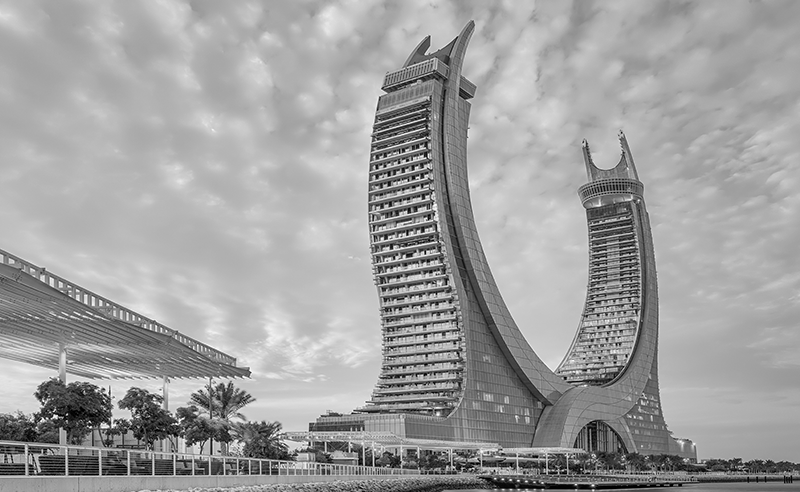Masterclass With Tarek Sakr, CEO of 4Sale
Sakr shares his views on the importance of profitability for startups and businesses in today’s challenging climates.

StartupScene’s op-ed series ‘Masterclass’ invites some of the region’s most dynamic entrepreneurs to divulge their secrets, dispense their knowledge, and share their experiences with the MENA region’s ever-growing startup ecosystem. Whether they’re written by old guards or trailblazers, these masterclasses have been created to illuminate the path for aspiring entrepreneurs.
This week’s Masterclass contributor is Tarek Sakr, CEO of 4Sale, a leading online classifieds platform in Kuwait with over one million users. Sakr shares his views on the importance of profitability for startups and businesses operating in today’s challenging macroeconomic environment.
Chasing profit is not just sanity, but the secret for success
Chasing growth is vanity, profit is sanity. This has long been my mantra as an entrepreneur and should inspire others across the MENA region.
The region is home to many healthy startups - increasingly backed by venture capitalists, often technology companies - as more investors flock to the Middle East, attracted by its high economic growth and spirit of innovation.
But the regional ecosystem has challenges. Many young tech companies have great teams, but choose sub-optimal industries. While innovation is crucial, it is vital to assess an industry's scope for genuine profitability - as opposed to future-gazing based on more wishful thinking than reality. In the MENA region, where markets might be smaller and competition fierce, it is even more important to pick industries offering sustainable growth.
There is a lack of focus in properly measuring unit economics - the foundation of profitability - and understanding its dynamics. Startups should prioritise understanding and optimising these fundamentals rather than scaling at any cost. This is what delivers optimum results, and if a business is not ultimately profitable – or shall we say not delivering quality growth (i.e. profitable growth) - then what is the point?

Venture capitalists are scouring the region seeking the next unicorns. It is a vibrant climate as developments in technology are as rapid as they are seductive. Throw in record low yields on fixed income investments and slow developed markets growth, and mobile international capital is looking further afield to find returns. As appealing as the logic may be, such capital allocation increases risk.
Yet entrepreneurs are only too delighted to accept growth capital to - seemingly - supercharge their businesses. Startup culture often lends itself to dreaming of future acquisition approaches based on top-line increases, rather than the slightly duller approach of building long-lasting foundations and with income consistently exceeding outgoings. Profitability often ends up falling by the wayside in pursuit of the perceived elixir of growth.
The script is familiar. Start with an innovative idea, preferably an ambitious and extraordinary one. Increase brand and product visibility as a priority and - after a seed investment - expand operations ahead of Series A/Series B fund raises. The capital inflow keeps nominal growth going, and operational KPIs (carefully chosen and presented by the startup) can look good for a while. A familiar phrase is: “We could be profitable now if we chose to, but we’re growing and acquiring more customers.” Finally, exit at the highest possible valuation.
The problem is, few sustainable and profitable businesses are built in such a startup climate. A sustainable business must put profits first, even in today’s challenging environment. Sceptics often point to successful, yet unprofitable, technology businesses in recent years, such as Airbnb and Uber. One cannot dispute that technology investors in developed markets seem to be more sanguine about a largely loss-making portfolio, hoping rare success stories will subsidise the majority of losses.
But this philosophy - more typical in developed markets - does not necessarily work in the Middle East. With smaller markets, long-term business survival and sustained growth are more dependent on profitable operations than continued nominal growth. Investors in some growth-obsessed MENA startups may have a shock or two as global markets continue to navigate economic headwinds, and the cost of debt rises across the world.

Successful exits can lead to a virtuous circle of more confidence in the region, more investment and a stronger overall ecosystem. There is nothing inherently wrong with funding business models that need time to mature and turn a profit, especially if they are impactful.
But there are inherent dangers in growth-and-exit strategies detrimental to long-term growth. Sound economics should be the priority of investors and founders. Growing local economies responsibly means businesses generating sustained profits.
Regional nuances are also important, for example, an individual geographic market’s price elasticity. Ideally, a market where consumers are less sensitive to price fluctuations. This can help protect profit margins and ensure long-term sustainability.
Growth at any cost can be enticing, but investors and founders in MENA’s tech ecosystem should prioritise financial sustainability. I speak from experience. Here at 4Sale, we are very focused on profitability - particularly compared with other MENA startups. We are a profitable company and have been since inception. Because of this, we have been able to re-invest our profits into nurturing our platform, optimising our customers’ experiences, and becoming Kuwait’s largest online classifieds platform and market leader in the sector.
Chasing growth is popular and may get some short-term headlines, but when the dust settles, achieving funding first and then chasing profitability aka quality growth is not just better; it is the secret to lasting success.
- Previous Article Debt Crowdfunding Marketplace Lendo Raises $28 Million
- Next Article Blink Secures $2.1 Million Seed Round to Boost Saudi Expansion
Trending This Month
-
Jan 19, 2026






















